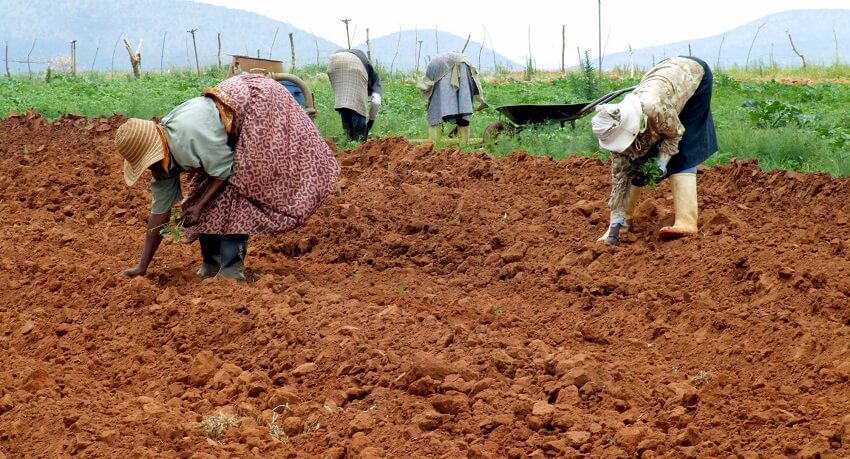The high cost of farm input such as fertilizer, chemicals, and seedlings among others may affect the output of farmers in the 2022 farming season, THE WHISTLER has learnt.
Farmers who spoke to our correspondent in separate interviews expressed concern that the high cost of these items may result to an increase in the price of some commodities after the harvest season.
Advertisement
The International Monetary Fund had said last week that the invasion of Russia in ukraine had delivered a further “huge negative shock” to sub-Saharan Africa, driving food and energy prices higher and putting the most vulnerable people at risk of hunger.
The extra pressure comes as many countries are still reeling from the protracted COVID-19 pandemic.
Nigeria has for years been battling double-digit inflation, which quickened to 15.92 per cent last month, and its population of 200 million will face even higher food costs this year and the next as the agricultural sector passes on the higher costs of imported wheat, diesel and fertiliser.
According to the National Bureau of Statistics, food inflation year-on-year basis was highest in Kogi with 22.21 per cent followed by Cross River recording 19.86 per cent and Kwara (19.53 per cent).
Advertisement
On a month-on-month basis food inflation was highest in Anambra with 3.78 per cent, followed by Niger with 3.60 per cent and Zamfara with 3.31 per cent.
But farmers who spoke to this website called on the government to quickly intervene by making farm inputs cheaper and affordable to farmers
In an interview with THE WHISTLER, a farmer, Mrs Judith Asemota, who owns a large vegetable farm in Nasarawa State lamented the high cost of fertilizer on her productivity.
She said, “When I started farming, I bought a bag of fertilizer for N4,000, but as of May 5 2022, I am buying for N28,000.
“Due to my farm size, there are many challenges I face as a farmer, such as, insecurity, manpower, transportation but the ridiculous increase in farming materials is affecting productivity and sales.”
Advertisement
Giving a breakdown of expenses, Asemota added, “I own eight hectares of land of which I buy 10 bags of fertilizer in two months. Last year, I bought at N12,000, this year I’m buying for N28,000, approximately N280,000 instead of N120,000 every two month.
“Manures are also good, but due to the ridiculous increase in fertilizer, demands for manure has increased as well, which makes it scarce and expensive.
“I use Push Chemicals on the vegetable against insects, to make it healthy, darkish green, fast growth and to avoid blemish on the leaf, it was sold for N1,500 but now it is N4,500.
“The price of Naroda which is a chemical for weed used to be N9,000 per liter and I am using six litres monthly which is N54,000.
“I have six workers currently because it’s raining, I do have more than that during the dry season, where I feed six of them each N750 per day, and pay them N12,000 monthly; a total of N135,000 monthly.”
Asemota also lamented the negative impact of the activities of herders on her farms.
Advertisement
She added, “Last month, they (herders) came and ate up over 10 plots of land of vegetables, some young vegetable ponds were destroyed as the cows stepped on them.
“I am farming on eight hectares of land, of which I’m paying rent for 4 hectares; each hectares is 10 plots and I pay N10,000, so a total of N40,000 for the rented portion yearly.
“In this hardship I’m still losing to herdsmen, despite all the money I spend on production, fertilizer, chemicals, it’s really hard to keep up.
“I make daily sales and I am complaining bitterly, I really do pity farmers that have to wait for months for their crops to germinate before harvesting and selling off. Most of them are not farming as usual this year and it’s only going to make commodities expensive and scarce to buy.”
Also, another farmer who identified himself as Solomon Chindo who owns a rice farm at Rafi Ado, Nasarawa State also lamented the high price of farm input.
Chindo said he would be reducing his farming activities this year because he does not want most of his crops to be eaten by cattle.
“I will have to reduce production because of the high price of fertilizer,” he added.



